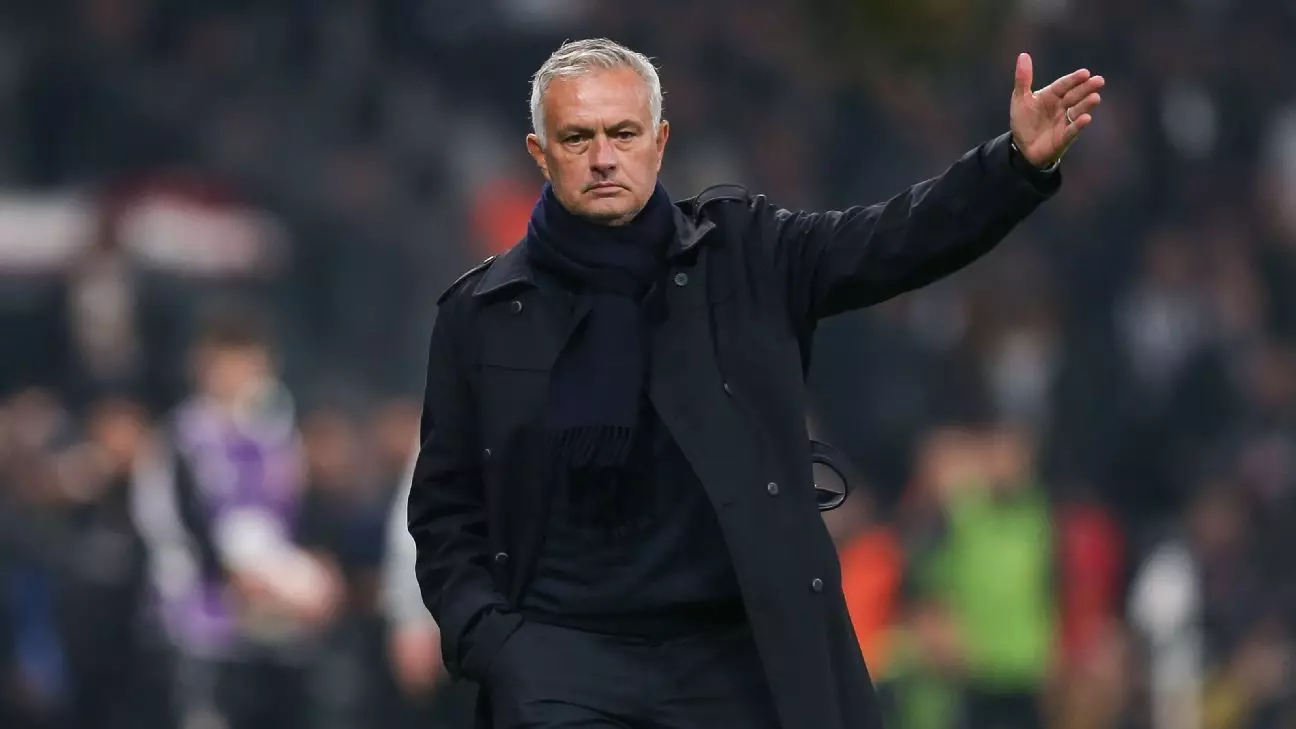The world of football is filled with rivalries that transcend mere game-day competition; they provoke emotions, ignite discussions, and, most importantly, play a significant role in shaping the sport’s narrative. Among these rivalries, few are as intense and storied as that between José Mourinho and Pep Guardiola. The dynamics of this rivalry took center stage recently during discussions surrounding Manchester City and its financial practices, drawing both managers back into the fray.
At the forefront was José Mourinho, now the coach of Fenerbahce, who responded to comments made by Guardiola regarding Manchester City’s current controversies over alleged financial violations. Guardiola had defended his tenure and success with City, during which he celebrated his six Premier League titles in response to Liverpool supporters’ banter. This prompted Mourinho to interject with what he described as a desire for fairness in football, which he implied extends to all clubs, particularly those considered “small.”
Mourinho’s insistence that he seeks “justice” rather than a vindictive wish for Manchester City’s relegation demonstrates his positioning within football as a staunch advocate for equilibrium. He reflected on his experiences with various clubs and highlighted how smaller teams face harsh penalties while wealthier clubs seemingly evade accountability. This sentiment echoed concerns many share regarding the implementation and enforcement of Financial Fair Play (FFP) regulations.
The historical context of Mourinho’s rivalry with Guardiola adds a compelling layer to this dialogue. Their years of competition, especially during their respective tenures at Real Madrid and Barcelona, were marked by high-stakes encounters filled with tactical masterclasses, psychological warfare, and a substantial public narrative. Although Mourinho claims no personal animosity towards Guardiola, his words certainly reignite the competitive tensions that bring fans to the edge of their seats.
The mention of “financial sharks” and their ability to navigate around regulations speaks to a broader issue in football: the growing divide between wealthy and less affluent clubs. Mourinho’s past experiences at clubs like Roma, where he faced strict financial scrutiny, lend credibility to his arguments. The spotlight on financial equity resonates beyond individual rivalries and taps into a critical discussion about the integrity of the sport as a whole.
Guardiola’s subsequent reasoning, that Mourinho is part of a faction that wishes for City’s relegation, serves to illustrate the fragile essence of football rivalries. Guardiola’s refusal to engage substantively with Mourinho’s comments during his pre-match press conference shows a strategic sidestepping of confrontation, perhaps indicative of his attempt to maintain focus on Manchester City’s immediate challenges rather than historical disputes.
The comments reflect a vital aspect of football management: the balancing act between competition and camaraderie. While the media often frames their relationship as antagonistic, Mourinho’s reassurance that there are “no problems” between them highlights an underlying respect that can exist alongside fierce rivalry. This acknowledgment complicates the narrative and invites deeper reflection among fans and analysts alike.
Both managers seem to be on their respective paths, with Guardiola recently extending his contract with Manchester City, signaling continued commitment to the club’s aspirations. Mourinho, meanwhile, is navigating challenges with Fenerbahce, showcasing his enduring passion for football that transcends victories and titles. The suggestion that Guardiola may not be inclined to manage another club after City adds a hint of finality to a successful era, while leaving fans to ponder what legacy he will leave in the footballing world.
Ultimately, while both Mourinho and Guardiola may, on the surface, seem defined by their competitive dynamism, their statements invite a larger conversation about justice in football. They highlight critical issues regarding fairness, accountability, and the need for a level playing field—principles that every true footballer, manager, and fan should advocate for, regardless of allegiance. Thus, the rivalry between these two iconic figures offers more than just heated exchanges; it serves as a reflection of the sport’s evolving landscape, full of complexities and challenges that extend well beyond the pitch.

